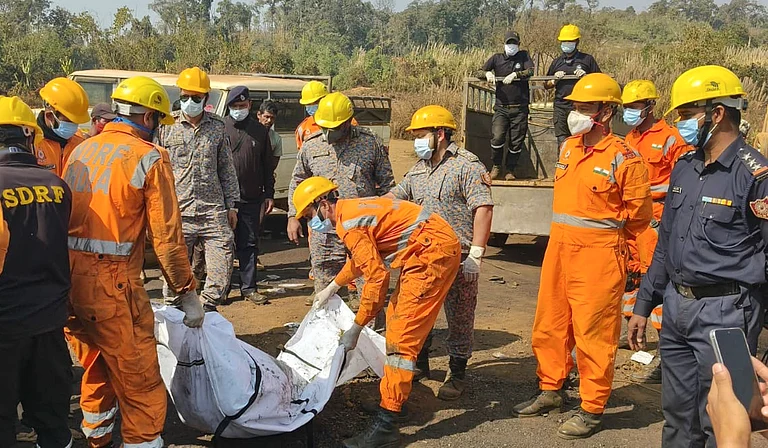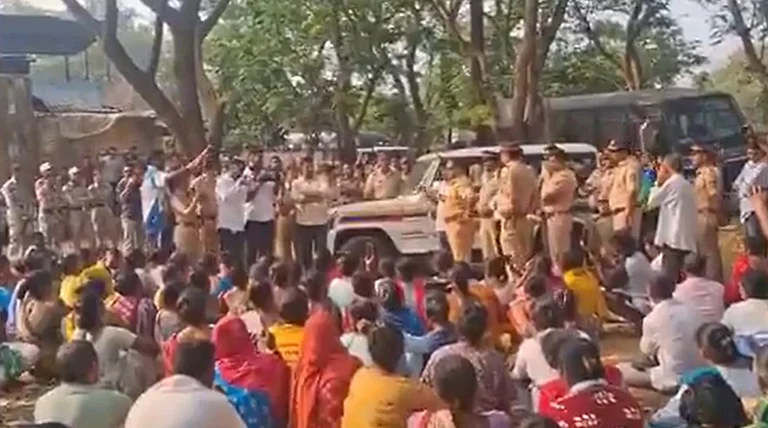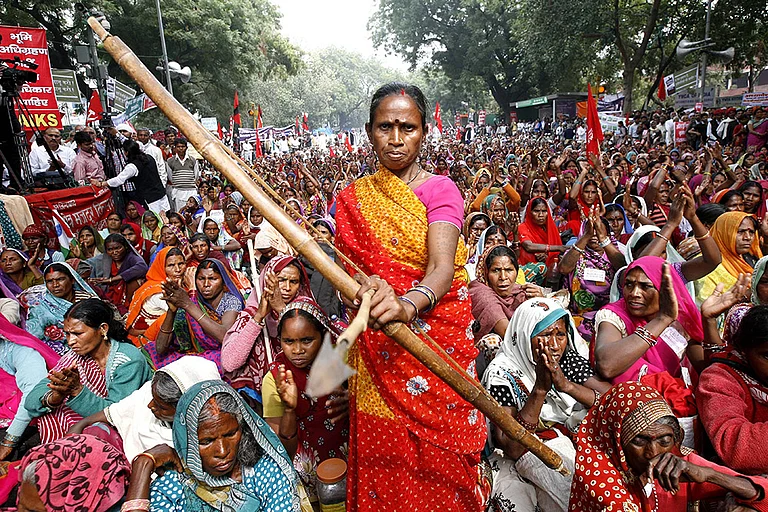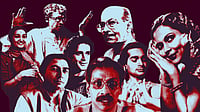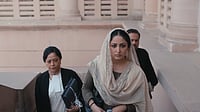“I ask the child the way to his village
He moves his head and points to a truck
‘Ask any truck driver, dai,’ he says
‘Loaded with coal, iron, bauxite
And many villages dumped on it,
The truck that goes towards the city every day,
Only it knows the real way to my village.”
November 16 marked the 149th birth anniversary of revolutionary freedom fighter and Adivasi leader Birsa Munda. Known in popular legacy as Dharti Aaba (father of the Earth), Birsa Munda continues to be celebrated across political lines as one of the most prominent anti-colonial leaders in the nation’s history. His battle cry of “Abua Dishum, Abua Raj” (our state, our rule) still echoes across tribal belts in eastern India, where he is worshipped as a deity. Yet, his battle for Adivasi rights over their land is a quandary that continues to persist in these regions— even as it has been over a century since his martyrdom.
Adivasi poet, writer and journalist Jacinta Kerketta’s short documentary, Astitva Ka Utkhanan (Excavation of Existence) is a film on this very David and Goliath battle between the Adivasi way of life and the idea of ‘development’. An 8-minute long documentary, the film is set against the backdrop of Saranda—Asia’s large Sal tree forest—in Jharkhand. Kerketta, who belongs to the Oraon tribe, has been a vocal advocate for the assertion of Adivasi identity and land rights. Known for her piercing writing style, she has recently embarked on her journey of filmmaking with a small crew of Adivasi youth. When asked why she chose to venture into the medium of cinema, Kerketta said, “Films can be used to showcase ground realities to people. Those who cannot spare the time to read books about the precarity of Adivasi lives, can benefit from watching short films on these issues. Through cinema, the viewer can feel more empathetic towards our existence. This is why I decided to make a film.”
Kerketta’s poetry is the powerful thread that strings together the narrative of Astitva Ka Utkhanan. In her verses, she solemnly reflects on the irreversible damage that the ‘development’ leaves in its wake on Adivasi livelihoods. The film begins with serene visuals of Saranda and the Adivasi communities living in harmony within the forest. An Adivasi woman explains how her ancestors built the village strategically to ensure that while the families remain self-sufficient, the ecosystem remains unharmed.
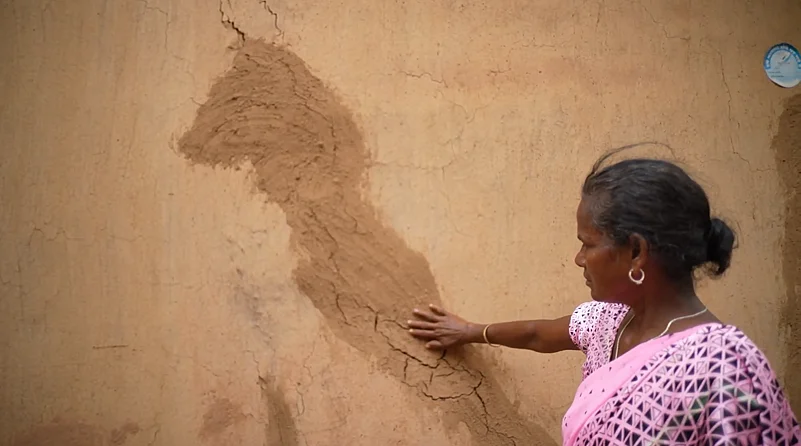
But the picture soon turns grim. Endless rows of trucks inundate the screen, as the lush green hills are stripped and cut down in the background. The forest, home to the Adivasis, is also a rich repository of iron ore. “People say, mining is essential for the country’s development,” the narrator tells us. “Why do Adivasis have to pay the price for the country’s development?” the voice-over pertinently asks.
We are made privy to the aftermath of the mining on Adivasi villages. Dilapidated huts—that once used to be flourishing homes—lay abandoned as the dust of the plunder settles. While some Adivasis recede deeper into the forests, other villages closer to the mining locations are forced to cope with its impact on their daily lives. Depleting water tables, lower agricultural output and cracking walls due to mine blasting are their everyday reality. Consequently, many of these communities are forced to migrate out of these regions in search of a living. Kerketta’s words haunt the viewers— “O, City! Are you ever wrenched by the roots, in the name of so-called progress?”
Much like the large pits that mining companies leave behind, Astitva Ka Utkhanan is about the open wounds of Adivasis which have ceased to heal. The forest communities— who have cried hoarse about the aftereffects of mining—are left unheard. And there is good reason to this deliberate silencing. As Kerketta states, “They cannot stand the sight of trees, because the roots claim land.”
But the film does not leave us on the note of helplessness. It affirms that the battle of Adivasis for their rights over their ancestral land is ongoing. Even as the State allows private players to take over vast swathes of forest land to fulfil their never-ending greed, the Adivasis refuse to surrender. And it is this spirit of resistance, which births the poetry that Kerketta pens: “While they wait for us to become civilised, we wait for them to become humanised.”








